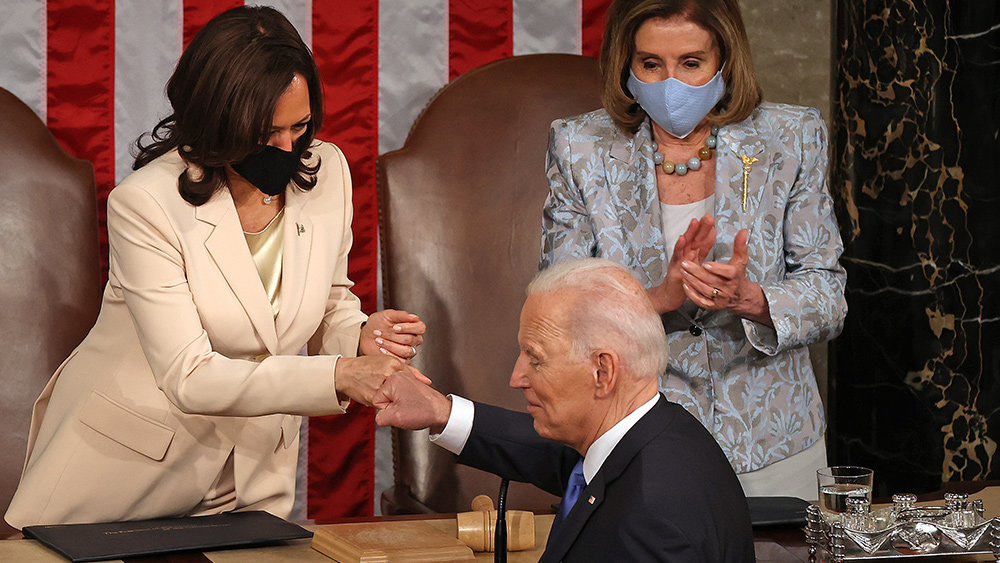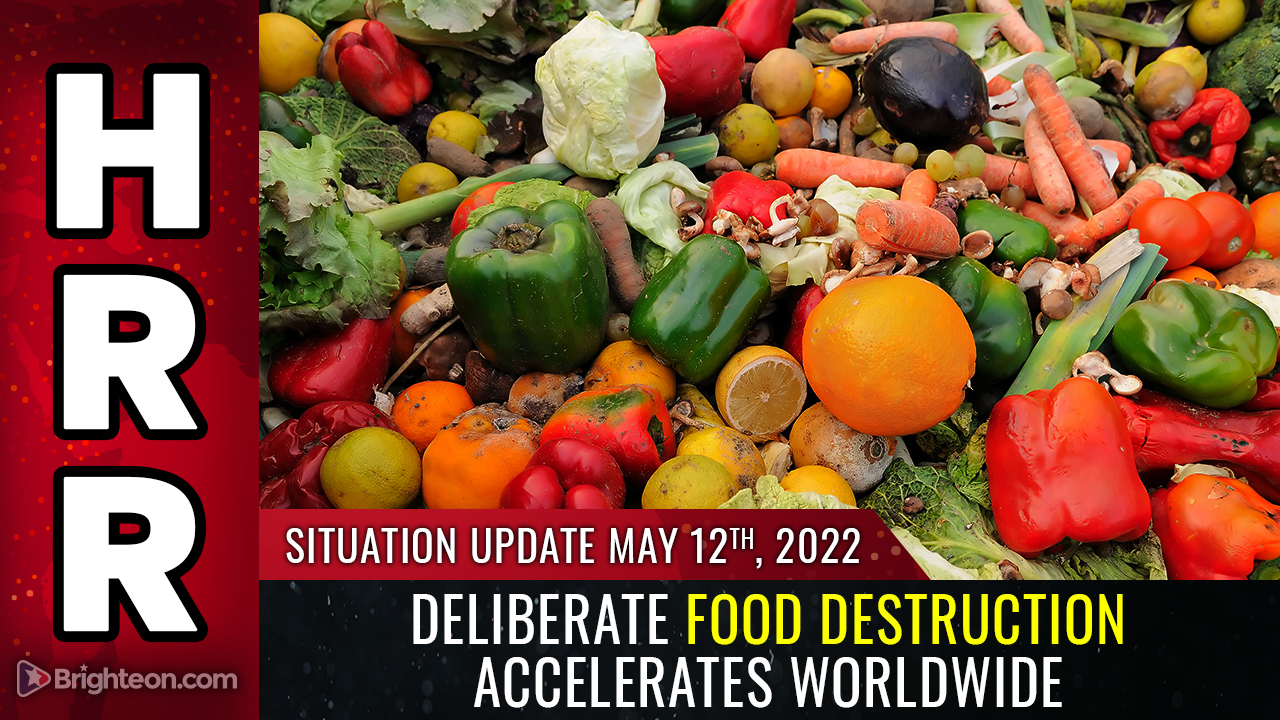FDA rejects petitions to BAN hormone-disrupting phthalates in food packaging
05/25/2022 / By Ramon Tomey

The Food and Drug Administration (FDA) denied petitions to ban hormone-disrupting phthalates found in food packaging. Phthalates have been linked to serious health concerns, including stunted brain development in children.
The regulator’s May 19 decision came in response to two petitions lodged in 2016 by environmental and public health groups. The petitions asked the FDA to ban a total of 28 phthalates from both food packaging and food production equipment. It also asked the agency to rescind earlier authorizations for certain phthalates.
“Phthalates interfere with hormone-regulated processes in the body and are linked to a range of health harms – including birth defects, infertility, miscarriage, breast cancer, diabetes and asthma. Phthalates also harm the developing brain, leading to reduced IQ and attention and behavior disorders in children,” environmental law group Earthjustice said in a statement. The organization is one of many parties who filed the 2016 petition to ban phthalates.
Earthjustice attorney Katherine O’Brien said of the decision: “FDA’s [May 19 response] recklessly green-lights ongoing contamination of our food with phthalates, putting another generation of children at risk of life-altering harm to their brain development.”
Representatives of other organizations who filed the petitions also expressed disappointment toward the FDA’s response.
Tracy Gregoire, director of the Learning Disabilities Association of America’s Healthy Children Project, said: “Phthalates which put children at risk for lifelong learning challenges, ADHD and lower IQ don’t belong in our food supply. FDA has the power and the responsibility to protect children’s brain health, but is once again failing to protect our children.”
Meanwhile, Center for Environmental Health Food Program Director Sue Chiang said: “We are deeply disappointed with this decision and FDA’s continued failure to safeguard public health. For years, we have asked the FDA to ban phthalates in food packaging and food production materials [as] we know phthalates migrate into food.”
FDA only sat on the petitions instead of acting on them
The petitioners also lamented how the regulator sat on their requests for six years instead of acting on them. While the FDA is supposed to respond to petitions within 180 days, the agency only responded after the petitioners filed a lawsuit against it in December 2021.
“FDA’s announcement that it will now start reviewing new data on phthalate safety – six years after advocates sounded the alarm – is outrageous and seeks to sidestep [the agency’s] legal duty to address the current science in proceedings on the existing petitions,” said O’Brien.
Center for Science in the Public Interest President Dr. Peter G. Lurie denounced the FDA’s May 19 decision as “signaling its intent to remain planted on the sidelines” on the issue of phthalates. “For too long, the FDA has largely remained on the sidelines as concerns have mounted over phthalates in food – exposing all of us to unnecessary risk,” he said.
“We submitted these petitions in 2016. The law required a decision several years ago,” said Tom Neltner, senior director for safer chemicals at the Environmental Defense Fund. He cited an April 2022 POLITICO article that pointed out FDA’s foot-dragging response on regulatory issues related to food. (Related: Probe finds that the FDA is rife with problems when it comes to FOOD SAFETY.)
According to the April 8 piece, “regulating food is simply not a high priority at the agency, where drugs and other medical products dominate both in budget and bandwidth.”
“Over the years, the food side of the FDA has been so ignored and grown so dysfunctional – that even former FDA commissioners readily acknowledged problems in interviews.”
Dr. Stephen Ostroff, who served as acting FDA commissioner during the Obama and Trump administrations, attested to this internal dysfunction in the agency. He told POLITICO that “there are a lot of things that languish” in the FDA, most especially when it comes to food-related regulation.
“The food program is on the back burner. To me, that’s problem No. 1. We don’t have that imperative and that pressure to actually make things happen on the food side of the FDA.”
Watch Tammy Cuthbert Garcia of “Naturally Inspired” talking about phthalates in food below.
This video is from the Tammy Cuthbert Garcia channel on Brighteon.com.
More related stories:
Health Ranger reminds us that U.S. food safety regulators are running on corruption.
People who eat junk food are exposed to dangerous levels of phthalates.
Phthalates found in plastic food packaging linked to chronic disease.
Sources include:
Submit a correction >>
Tagged Under:
big government, brain health, chemicals, children's health, corruption, FDA, food packaging, food production, Food regulation, Hormone disruptors, phthalates, products, toxic ingredients
This article may contain statements that reflect the opinion of the author
RECENT NEWS & ARTICLES
COPYRIGHT © 2017 GROCERY NEWS



















